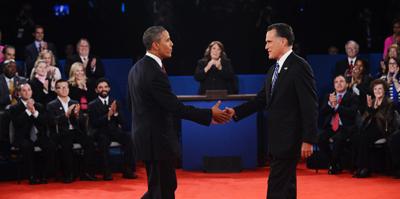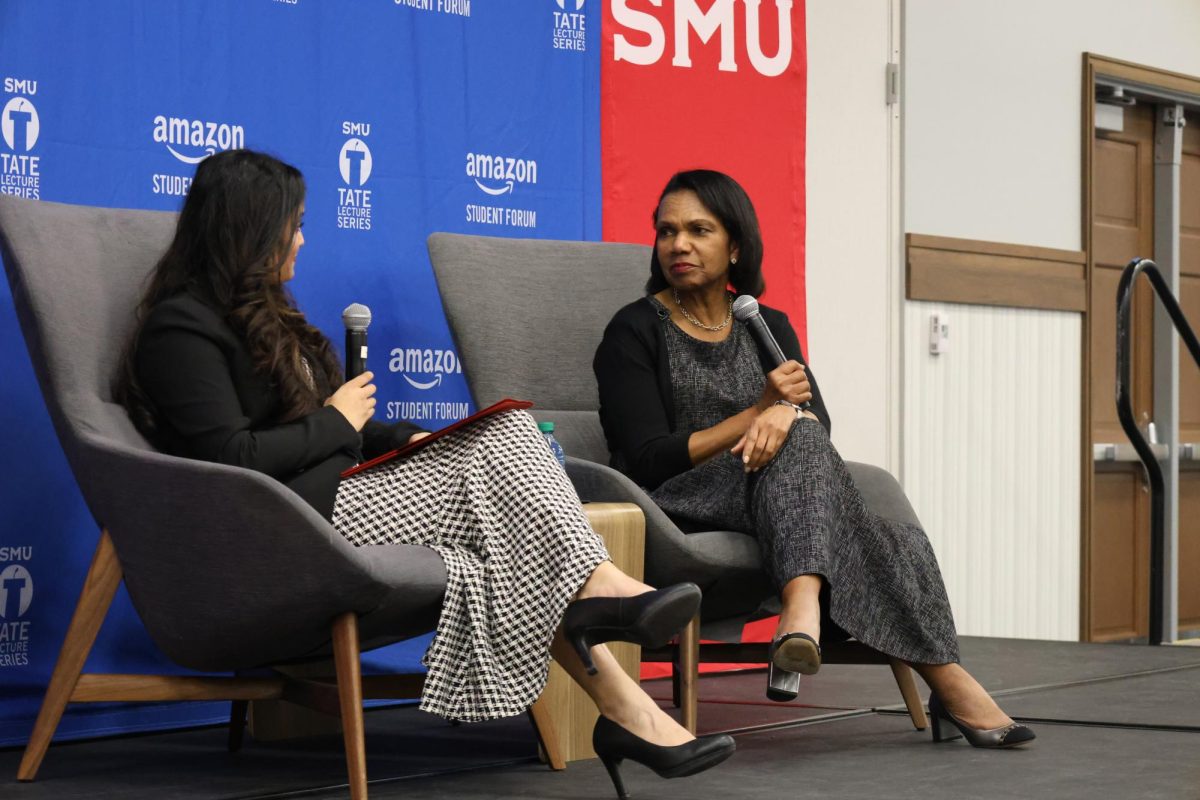
President Obama and Gov. Romney debated at Hofstra University on Tuesday night. (AP)
President Barack Obama and Gov. Mitt Romney faced off for the second time Tuesday night. In the town hall-style debate, 82 uncommitted voters from the New York area provided the questions and the candidates directly.
Dennis Simon, professor in SMU’s political science department, said the first debate between the two presidential candidates caused a stronger shift and greater jump for Romney than was originally anticipated.
The second debate for both candidates thus held goals in propelling their respective parties ahead of the other. In repeating history, the states with the highest number of undecided voters became the trophies for the candidates.
“Swing states are going to determine this election…roughly nine states are in play,” he said.
Tuesday night’s session was again a second chance for either candidate to turn voters in their favor during what is shaping up to be a very close election.
“Things have shifted considerably in the last couple of weeks. It’s an election that could very plausibly be won by either candidate,” professor Matthew Wilson, a colleague of Simon, said.
When the deciding factors have come “down to the independents and undecided voters,” the third debate of the 2012 election series provided candidates the opportunity to either really appeal to or fall away from voters who are yet to determine their vote.
“We have not made the progress we need to make to put people back in work,” Romney said.
He opened his side of the debate saying that the middle class “has been crushed over the last four years” and that Obama’s policies “haven’t put people back in work.”
He later emphasized utilizing foreign trade to help create domestic jobs. He said countries, especially China, would need to engage in fair trade for this to succeed.
“We are going to make sure people around the world play by the rules,” Romney said.
Obama answered that for American jobs to flourish, higher education would need to be “the best education system in the world.”
He said that investment in engineering and manufacturing would allow for the greatest leaps in American foreign trade.
Obama also promised to “continue to make [efficient energy] a priority” for America. The president asserted that the Romney plan does not account for sustainable resources beyond “tomorrow and the day after that.”
When asked about tax cuts, Romney said, “I’m not looking to cut taxes for wealthy people. I am looking to cut taxes for middle class people.”
He explained his plans to bring down rates for smaller businesses and allow employers to hire more workers, stimulating the economy. He attributed it to his desire to “get America going again.”
But Obama called Romney out on the supposedly unexplained cost of lowering tax rates “across the board.”
“When [Romney’s] asked how he’s going to do it, he can’t tell you.” Obama said.
The sparring continued as both candidates approached the topic of women in the workforce.
“I’m going to continue to push on this issue over the next four years.” Obama said of his promise to raise equal employment opportunities for women.
Romney attributed the rise of working women to the need for “flexibility” with employers in allowing women to balance their career and family lives.
“What we can do to help women is have an economy so strong hat employers are eager to have women workers,” Romney said of the economy he plans to bring.
The voters did not shy from confronting Romney on their dissatisfaction with former President Bush.
With the voters concerned that the same issues could arise with a president once again from the Republican Party, Romney emphasized the growth the party has made.
But Obama responded to Romney’s claims, saying that “in some ways, [Romney’s] come to a more extreme place in social policies.”
One such social policy approached was immigration Romney said he “would not grant amnesty to those who come here illegally,” but his party would support those following the rules.
“We welcome legal immigrants into this country,” Romney said.
Obama’s response geared toward recognizing flaws and working to fix them without ultimatums.
“We need to fix a broken immigration system,” he said.
In light of the recent attack on the American embassy, defense was one of the last topics of discussion.
Despite Romney’s criticism of Obama’s handling of the situation, both candidates promised that justice to American lives lost to terrorism is their first priority.
“They will be held accountable,” Obama said.
The final debate will be held Oct. 22 at 9 p.m. EST at Lynn University in Boca Raton, Florida.














